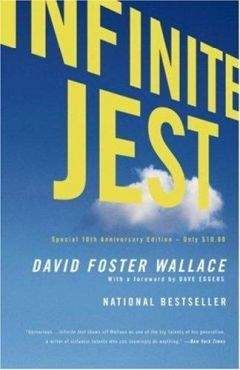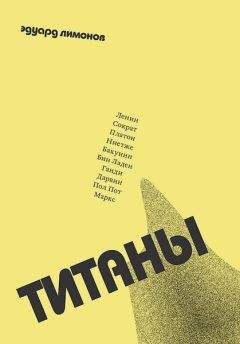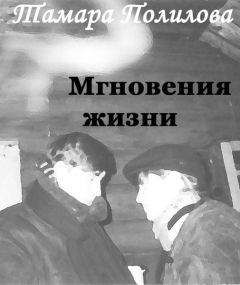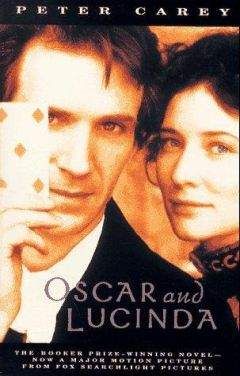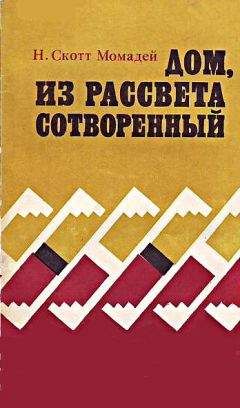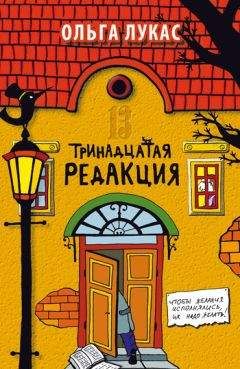Lars Iyer - Spurious

Скачивание начинается... Если скачивание не началось автоматически, пожалуйста нажмите на эту ссылку.
Жалоба
Напишите нам, и мы в срочном порядке примем меры.
Описание книги "Spurious"
Описание и краткое содержание "Spurious" читать бесплатно онлайн.
In a raucous debut that summons up Britain's fabled Goon Squad comedies, writer and philosopher Lars Iyer tells the story of someone very like himself with a "slightly more successful" friend and their journeys in search of more palatable literary conferences and better gin. One reason for their journeys: the narrator's home is slowly being taken over by a fungus that no one seems to know what to do about.
Before it completely swallows his house, the narrator feels compelled to solve some major philosophical questions (such as "Why?") and the meaning of his urge to write, as well as the source of the fungus… before it is too late. Or, he has to move.
Before beginning to give our collaborative presentations, W. and I always dab our wrists and then the skin behind our ears with moisturising wipes. It calms you down, W. says. It prepares you for the task ahead. He takes his wipes everywhere with him. — ‘I learned it from Sal. You see — this is what women can teach you’.
They were handy when we were travelling across Poland. We sat there with flushed faces until W. got his tissues out. — ‘Dab your wrists, where women put on perfume, and then behind your ears’, W. told us, giving out tissues. Suddenly a marvellous coolness descended. — ‘You see!’
‘Why don’t you get rid of that jacket?’, says W. ‘You’ve been wearing it for years. It makes you look fat. It’s completely shapeless’.
W. and I are wearing our flowery shirts. ‘Look at us’, W. sighs, ‘fat and blousy, and everyone else slim and wearing black’.
What’s wrong with us? Why are we never dressed for thought? Take my trousers, for example. They should be pulled up round my waist like those of Benjamin in that famous photograph. But they sag. They droop disappointingly. — ‘You’re a man without hips!’, says W. ‘A man without ideas!’
I’m getting fat, of course. Eventually, I’ll have to wear elasticated trousers like the American professors, W. says. Perhaps it will suit me, my obesity. Perhaps it will give me gravitas.
It’s too hot! I complain. W. reaches in his man bag for a wipe. W.’s prepared for the heat, he says. He watched the weather forecasts. ‘Dundee is either very hot’, he says, ‘or very cold’. He reaches in his man bag for suntan lotion, and applies it to his cheerful face.
W. is an enemy of sunglasses. — ‘Take them off’, he says, ‘you look like an idiot’. But it’s sunny, I protest. — ‘They block your pineal eye’, he says. ‘It needs sunlight’.
The pineal eye’s in the centre of the head, W. explains, but it’s sensitive to light. Without light, you quickly become depressed. — ‘That’s why you’re so morose’, says W. I’m morose, he says, whereas he, who doesn’t wear sunglasses, is joyful. — ‘Joy is everything’, W. says. He is essentially joyful.
‘I’ll bet it smells terrible out there’, says W., looking out of the window of my flat. ‘It does, doesn’t it? You can tell. I’ll bet it really stinks’. You’d never know of course from inside the flat, he says, because the windows won’t open. They’re jammed shut, I tell him, by the flat changing shape. It’s sinking, I tell him. It’s collapsing in the middle.
Later, W. helps me empty the cupboards in preparation for the damp proofers. We have to strip the flat down to a bare frame, I tell him. — ‘God, what’s that smell?’, asks W. as he sets down the pots and pans I pass him in the other room. ‘These are filthy’, he says. ‘How could you let them get like this?’
W.’s worried about my cough. — ‘The damp’s turning you consumptive’, he says. Even he’s developing a cough, and he’s only been here a few hours. — ‘How can you live like this? How can you get anything done?’
W.’s house is perfectly made for work, he says. His quiet, book-lined study on the second floor; his desk and laptop; the view over Plymouth roofs is perfect inspiration, he says. He has a sense of living above the world rather than living below it in the mud, as I do.
‘All your worldly possessions’, says W., looking round the room. ‘Is this what you’ve amounted to?’ Pots and pans, sticky with filth; rusty tins of mackerel and tomatoes; a duvet soaked in spilt fabric conditioner: ‘Yes, this is what it’s come to’, W. says, ‘it all ends here’.
I must have a death-drive, W. surmises. That’s the only thing that could explain it. I must, on some level, want to destroy myself. — ‘Just throw this stuff out’, W. says, ‘all of it. You don’t cook here, do you?’ There’s no power in the kitchen, I tell him. There’s no electricity. — ‘My God. How can you live like this?’, says W., his voice high with incredulity. ‘It wouldn’t have got this bad if you lived with someone’.
It’s no wonder I don’t do any work, W. says. He couldn’t work if he lived like me. Out all the time, reading nothing and living in squalor. It really is disgusting, he says. And the damp! He’s never seen anything like it, W. says. It hits you as soon as you come in. No wonder I’m always ill.
‘What would Béla Tarr would think of your damp?’, W. says. ‘What would he make of it?’ W. has become obsessed with Béla Tarr. He’s a genius, says W. He says he only makes films about poor, ugly people. The ugly and poor are his people, that’s what he says, says W.
Béla Tarr was going to be a philosopher. But when he started making films … No abstraction for him, says W. He’s completely devoted to the concrete, says W. To what he sees in front of him. He’s not like us, W. says. He doesn’t float nebulously into the most general and most confused of ideas, into our clouds of unknowing.
‘Béla Tarr doesn’t believe in God’, says W. ‘He’s seen too much to believe in God’. A little later, ‘He takes years over each film’, says W. ‘Years! Every kind of obstacle is placed in his way. His producers die of despair. His cinematographers leave in disgust. He runs out of money’. And then, ‘His films are full of drunks. Full of drunk, aggressive people like you’, says W. ‘And mud. His films are full of mud. That’s where you belong’, says W., ‘in the mud’.
Béla Tarr made his first film when he was sixteen, W. says. Sixteen! Sixteen! That’s when he started, says W. — ‘When did you know’, says W., ‘when did you know you’d never amount to anything?’ When did I take refuge in vague and cloudy ideas that have nothing to do with the world?
There’s something absolute about my yard, W. says. You can’t get beyond it. Some great process has completed itself there. — ‘What did you do to those plants? Desecrate them?’ and then, ‘What’s hung over your washing line? What was it, before it started rotting?’, and then, ‘Were those once bin bags? My God, what have they become?’
Béla Tarr would discern what is absolute about my yard, W. says. He’d register its every detail in a twenty minute tracking shot. The sewage, the concrete, the bin bags and rotting plants … the yard would mean more to Béla Tarr than all our nonsense.
Béla Tarr said that the walls, the rain and the dogs in his films have their own stories, which are much more important than so-called human stories. He said that the scenery, the weather, the locations and time itself have their own faces. Their own faces! Yes, we’re agreed, the yard, the horror of the yard, is the only thing around here in which Béla Tarr would be interested.
W. sends me a quotation to mull over in my stupidity, he says.
Forms of behaviour such as opportunism and cynicism derive from this infinite process in which the world becomes no more than a supermarket of opportunities empty of all inherent value, yet marked by the fear that any false move may set in motion a vortex of impotence.
W. finds the phrase, vortex of impotence, particularly thought-provoking, he says. It describes my entire life: action and powerlessness, movement and paralysis; that strange combination of despair and frenzy.
I want to escape, that’s my primary impulse, W. observes. I know something’s wrong, fundamentally wrong, and I want to be elsewhere. Of course, he’s not like me, says W., the rat who leaves the sinking ship. But I’m not escaping, says W. I’m going to drown with everyone else, he’ll make sure of it. I’m going down, says W.
We’re at the Mill on the Exe, right on the river, the sun shining warmly on our faces.
The South West! W. exclaims. He feels fortunate to live here. The South West is the graveyard of ambition, a colleague warned him upon his arrival from the east, but W. is not ambitious.
He just wants a little time and space to work, to think. To try to think, W. says. He reads in his study for three hours a day, he says, and he’s content with that. And occasionally he writes a thought in his notebook, at the back, in red ink.
‘What about you?’, W. asks. ‘Where do you write your thoughts?’ I tell him I’m too troubled to think. W. says he’s troubled too, who isn’t? But neither of us really is troubled, W. says. He always thinks of us as joyful, he says.
Drunk in the sun, we offer encomiums to one another. I never make him feel anything other than joyful, says W. I tell him he is able to momentarily make me forget my troubles and that this is his great gift.
W. and I are celebrants of rivers, and always feel the need to hail them. — ‘The mighty Tyne!’, W. might say, and I might say, ‘the mighty Plym!’ The sight of a river is always an occasion. So, of course, is that of the sea. It’s the ozone, says W., it makes you feel alive.
It does, and in particular the view of the sheet of the sea, just past Exeter. The whole sheet of the sea, viewed from the train, neat Plymouth Gin and ice in our plastic cups. — ‘This is happiness’, says W. Of course, they’ll have to reroute the trains soon. They’re electrical and short circuit when the surf splashes over them. Sometimes they stop for hours, immobile on the track. — ‘It’s the new trains’, says W. ‘They’re shit’.
W.’s felt ill nearly all his adult life, he says. When was the last time he felt well? I ask him. He can’t remember. — ‘It’s been years’, he says suddenly. ‘Years!’ He used to go for great walks on the moors, he remembers. That’s when he last felt healthy: on his great weekend walks, when he would set off with his walking friend (whatever happened to him?) with no particular end in view. They’d just walk for miles across the moors.
There’s nothing better, he says, than to climb up to the moors, and see the blue strip of the sea in the distance. Are there really big cats up there, panthers and the like? He never saw any, he says. There might be. But his moor walks are long since over. He lacks something, W. says. There’s something missing in him. Why doesn’t he go on his great moor walks any more? he wonders, as we look out to sea.
It’s important to hail rivers, we both agree, but just as important to hail the sea, although we do not do so by name. We do not, for instance, hail the sea south of Edinburgh as the North Sea, or the sea south of Exeter as the Atlantic (is it the Atlantic? I ask W. It is, he says.). A simple, ‘The sea!’ is enough. Just as when we see the edge of the moor on our train journeys in Devon, we cry, ‘The moor!’
Ah, the moor! W. is feeling regretful again. How can he become a better person, a better friend? How might he become a better thinker? His life is full of regret, he says, and gets out his Cohen. He’s going to read now, he tells me, and I’ll have to entertain myself.
On the train, W. and I sip Plymouth Gin from plastic cups. — ‘How come you got more ice than me?’ He reaches over and grabs a handful of mine.
Meanwhile, his book lies unread on the table. — ‘Cohen’, sighs W., ‘that’s what I should be reading, instead of talking idiocies with you’.
Then he tells me about calculus and God. — ‘Calculus: that’s why Cohen thought God existed. It’s all about maths!’ W.’s dad tried to teach him calculus, but he didn’t understand a word. — ‘I wasn’t ready’. W.’s found an instructional website now. He does exercises.
A little later he says, ‘We’re not religious. We’ve got no interest in religion. We’re not capable of religious belief’.
We know what genius is, says W. aphoristically, but we know we’re not geniuses. It’s a gift, he says, but it’s also a curse. We can recognise genius in others, but we don’t have it ourselves.
Max Brod, so unselfish in his promotion of Kafka, yet so given to a vague and general pathos — to amorphous stirrings wholly alien to the precision of the writing of his friend — has always served as both our warning and our example.
What could he understand of Kafka? Weren’t his interpretative books — which did so much to popularise the work of his friend — at every turn, a betrayal of Kafka? But then again, didn’t Kafka depend upon his friendship and his support? Didn’t Kafka lean on his friend in times of despair and solitude?
We too, W. and I decided long ago, must give our lives in the service of others. We too must write interpretative essays on the work of others more intelligent and gifted than we will ever be. We too must do our best to offer support and solace to others despite the fact that we will always misunderstand their genius, and only bother them with our enthusiasm.
W. finds me in a despondent state on the phone. Yet another of my escape bids has been thwarted. Yet another dream completely dashed. My lines of flight always go splat! against the wall, don’t they? W. observes. I’m like the cartoon mouse who hits the wall and then slides down it, he says. It’s painful to see, but also funny.
‘That look on your face!’, says W. And then: ‘Everyone can see it coming, even you can see it coming, but you run up against the same wall, don’t you? Every time! The same wall!’
We’re bottom feeders, W. always insists. We survive on scraps others leave us. That we can survive from day to day is miracle enough, W. says, let alone have any dreams of escape. We’re not even opportunists, he says, we’re too stupid for that.
We like to pretend we have some control over the circumstances of our lives, W. says, whereas in reality we have no control whatsoever. W. understands all this very well, he says. He learned it from me, which is why he’s surprised by my lapse.
We all have to face it at some time or another, W. says, there’s nowhere for us to go. No up and no down. We don’t have a chance. As soon as I realise this, W. says, something may be possible. But then again, nothing may be possible after all.
W. has wheedled £2,600 from some academic fund or other. It’s time to give something to the world, he says, rather than taking. Because that’s what we always do, he says, we take from the world.
We should send the money to Béla Tarr! Send it all to him! Béla Tarr’s our leader. How long have we been waiting for a leader? But there he is, working in Hungary, on the central plain, a long way from us. No doubt his producers have deserted him. No doubt he’s lost another cinematographer … We’re agreed: he needs our support, and we need his leadership.
But how are we going to get the money to Béla Tarr? Should we go to Hungary ourselves? My God, says W., what would he make of us? Two buffoons on the central plain! What would he think? Isn’t life hard enough for him as it is?
Подписывайтесь на наши страницы в социальных сетях.
Будьте в курсе последних книжных новинок, комментируйте, обсуждайте. Мы ждём Вас!
Похожие книги на "Spurious"
Книги похожие на "Spurious" читать онлайн или скачать бесплатно полные версии.
Мы рекомендуем Вам зарегистрироваться либо войти на сайт под своим именем.
Отзывы о "Lars Iyer - Spurious"
Отзывы читателей о книге "Spurious", комментарии и мнения людей о произведении.





